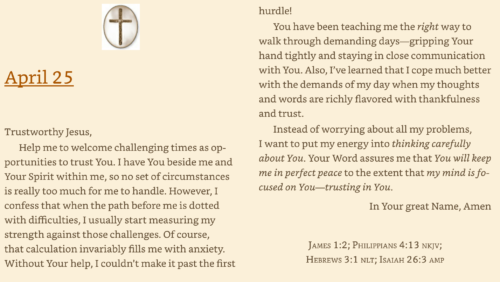We are to sink eternally from letting go to letting go into God.
—Matthew Fox, Meditations with Meister Eckhart
The Desert Fathers and Mothers understood detachment as the practice of letting go of everything that draws us away from God. Laura Swan explains:
Yearning for complete union with God, desert ascetics sought to remove all obstacles to the deepening of this relationship. Obstacles included unhelpful attitudes and motives, thoughts that stalled their pursuit of God, and emotional ties that complicated their inner journeys.
The desert ascetics’ relationships were non-possessive: They cared for others while leaving them free. Concern for reputation was discarded. Feelings were acknowledged and listened to for their wisdom but were subjected to the discipline of the heart’s goal to seek God. The desert ascetics sought to [discipline] disordered passions that distracted them from their deepening relationship with God and actively to cultivate a burning love for God.
Although the journey began with giving away possessions, desert ascetics understood that what possessed them was greater than the sum of goods owned. All that owned them [italics added], all that possessed their minds and hearts, their attachments and compulsions, must be healed and reconciled. Desert ascetics called this process of moving toward inner freedom detachment. Detachment allows for greater direct experience of the Divine Presence as the seeker is attached to fewer distractions.
Desert ascetics understood that the cultivation of inner freedom was vital to the deepening of their experience of God. As they deepened their interior freedom, all aspects of their false self [were] removed and a clearer understanding of their truest self emerged. It is this true self that dwells deeply with God. In the abundant simplicity of our true self, we experience deepest joy.
Swan explores the goal of “apatheia” (mindfulness or equanimity) in the teachings of the desert mystics:
Apatheia is a mature mindfulness, a grounded sensitivity, and a keen attention to one’s inner world as well as to the world in which one has journeyed. Strong emotions such as anger, fear, or anxiety did not dominate or control the ascetic’s inner world—they were disciplined to serve the inner journey rather than disrupt it.
Apatheia is purity of heart. The ammas [desert mothers] teach us to intentionally let go of all that keeps us from the single-minded pursuit of God: feelings and thoughts that bind us, cravings and addictions that diminish our sense of worth, and attachments to self-imposed perfectionism. Apatheia is nourished by simplicity grounded in abundance of the soul. This simplicity is in balance and harmony with the human community and the created world. To cultivate apatheia, we must be uncluttered in mind and heart and continue to be watchful and vigilant about those “seeping boundaries” where we can be deceived out of simplicity and into complexity under the guise of a “good.”
